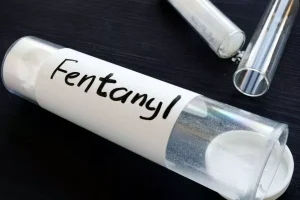
The cells, now called CAR T cells, are grown in a lab until they number in the hundreds of millions. When the cells are infused back into the patient, their specially designed receptor locks onto the tumor cell antigen and triggers an immune system attack on the types of relapse triggers cancer. The vehicle for accomplishing this is a fused-together “platform” unlike any other used in medical treatment. Many people may relapse because the desire to experience pleasure again, and get relief from uncomfortable withdrawal symptoms, is so great.
How can I manage stress and anxiety during my recovery ?
Family sessions are a fantastic way to rebuild relationships and learn to be supportive of one another when triggers arise. As you embark on this journey of self-discovery, remember that developing a relapse prevention plan is the first step toward a life free from addiction. Relapse prevention is a strategy designed to help individuals maintain their progress in overcoming addiction or other harmful behaviors. It involves identifying and managing situations, thoughts, and emotions that could trigger a return to the unwanted behavior. Healthy coping skills allow individuals to handle life’s challenges without resorting to substance use.
What Are The Most Common Relapse Triggers ?

Some people have to deal with friends or family members who don’t understand that “just one” or “just for tonight” are damaging and enabling statements that can trigger a relapse. Lastly, the article will emphasize the importance of developing a relapse prevention plan and provide guidance on creating a support network. Coping skills and strategies that can be utilized to navigate difficult situations and temptations will be outlined. Common triggers for relapse will also be discussed, ranging from external triggers in the environment to internal triggers within an individual’s thoughts and emotions. Identifying these triggers is essential in developing effective relapse prevention strategies. This component involves teaching practical skills essential for maintaining sobriety, such as coping strategies for managing cravings.

Learn to Recognize Your Personal Relapse Triggers at Discovery
Part of relapse prevention involves rehearsing these situations and developing healthy exit strategies. After addiction treatment, people who have faced alcohol and drug abuse now have the opportunity to implement a relapse prevention plan to maintain sobriety. When it comes down to situations, everyone handles adversity differently.
Mental Relapse
For example, if you’re craving sweets, you could try going for a walk, talking to a friend, or doing a puzzle. By keeping your mind busy with other activities, you can help reduce the intensity of your cravings. If you are enjoying yourself and focused on making the most out of life, you are less likely to relapse.
Recovering from substance use disorder can be a life-changing journey for many people. But recovery is a journey, and there are many other tools in treatment that can support your sobriety. The best way to keep your body feeling good and your mind feeling focused is to eat a healthy, nutritious diet. Hydration is another important aspect of nutrition and is vital for everyday health and overall happiness. With proper nutrition in hand, you can confront triggers and focus on developing a positive response.
Overconfidence in Recovery
- Remember, practice makes perfect, so be persistent with yourself as you learn to use these techniques effectively.
- A therapist or counselor can help you learn to listen to your mind and body to identify when you’re feeling stressed as well as help you develop healthy coping mechanisms.
- Breaking the cycle of relapse involves identifying common triggers and learning to manage them effectively.
- In late stage recovery, individuals are subject to special risks of relapse that are not often seen in the early stages.
- It involves identifying and managing situations, thoughts, and emotions that could trigger a return to the unwanted behavior.
Your sponsor or mentor, sober friends, and supportive family members are available to help you along. Additionally, it is beneficial to set clear and healthy boundaries with individuals in your network https://ecosoberhouse.com/ who still use drugs or alcohol. Emotional triggers are emotional states that can lead to relapse in recovery. These emotional states can range from anger, sadness, and loneliness to boredom or stress.